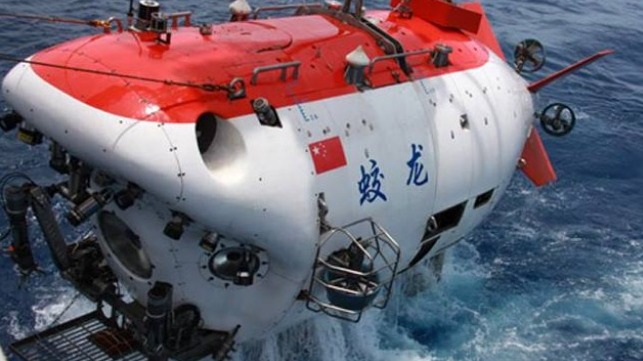
China has become a major player in seabed science, exploration and mining, the secretary general of the U.N.’s International Seabed Authority said Wednesday.
“China is the largest financial contributor” to the authority, established under the 1982 U.N. Law of the Sea Convention. Michael Lodge said,
Lodge spoke as the organization faces a 2025 deadline to establish regulations covering the extractions of minerals like cobalt and manganese deemed critical to future clean energy needs.
The Wilson Center, in announcing the event, noted, “Since 2001 the International Seabed Authority (ISA) has issued exploration contracts to search for polymetallic nodules, polymetallic sulfides, and cobalt-rich ferromanganese crusts.” They are crucial for longer-life batteries used in the motors of electric vehicles and important for wind turbine magnets.
Lodge added, “China is very active in seabed mining” in international waters.
These minerals are key elements to the future “as the global economy shifts to renewable energy.” He said the scale of the demand will be “enormous [and] quantifiable.”
Lodge said convention signatories from landlocked nations to small Pacific Island nations will share in the funds raised under the regulations. “Part of the money could be set aside for sustainability and capacity development.” He added that that would “be making deep sea success available to the whole world.”
He said he hopes the regulations set “a global benchmark for best practices.” With the rapid advances in remotely operated vehicles and unmanned autonomous vehicles for deep sea mapping work, Lodge said he could see the regulations guiding a “resource-rich harvest of nodules … without environmental degradation.”
Although 166 other nations and the European Union have signed on to the convention, the United States has not. It only holds observer status, Lodge added.
“The United States would not be able to be a sponsoring state” in the development of regulations covering the international seabed since it hasn’t ratified the agreement.
He used safety and environmental improvements in oil and gas extraction from the seabed as examples of how standards from extraction to raising what’s collected to the surface could be raised quickly with new technologies more readily available.
Lodge added all the mapping data the authority is receiving is shared with the non-profit Seabed 2030, established by the Nippon Foundation and GEBCO [General Bathymetric Chart of the Oceans] collaboration to complete the mapping by the start of the next decade.
While the seabed contains more minerals needed for future energy needs and economic growth, Lodge added they are not always present in quantities large enough to mine. He said this underlines the importance of mapping the entire seabed. In addition, “the tendency is just to consider the seabed by itself; the land by itself” when they should be looked at as a whole.
“The real problem is handling all the data” and “to fine-scale the data we can collect,” Lodge said using artificial intelligence is speeding the process.





